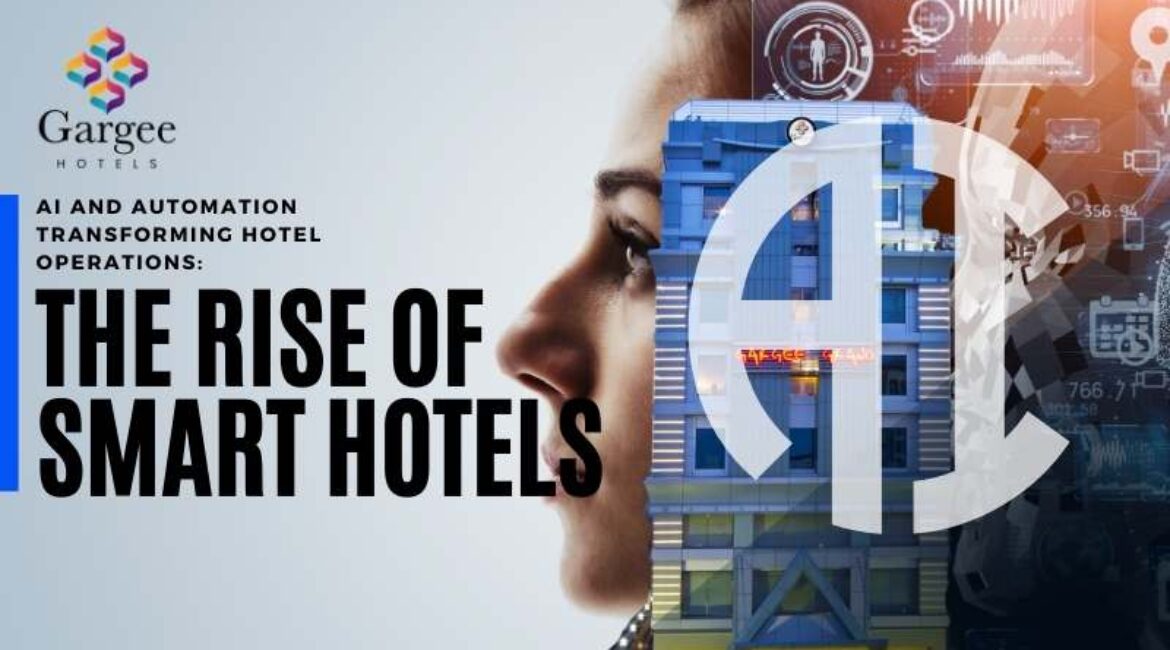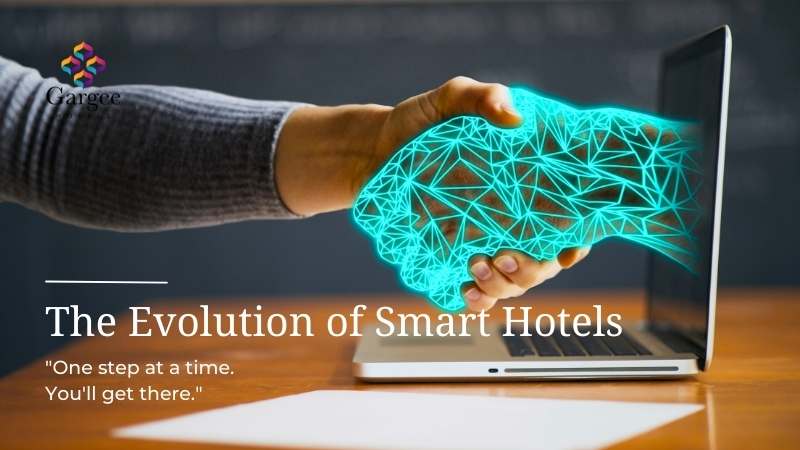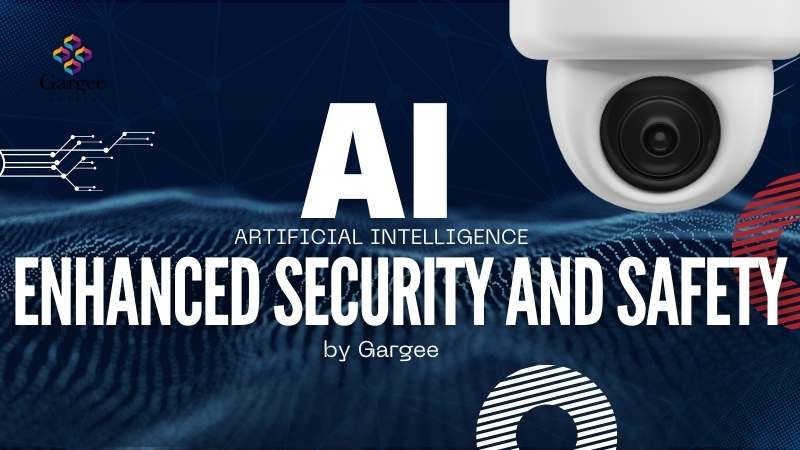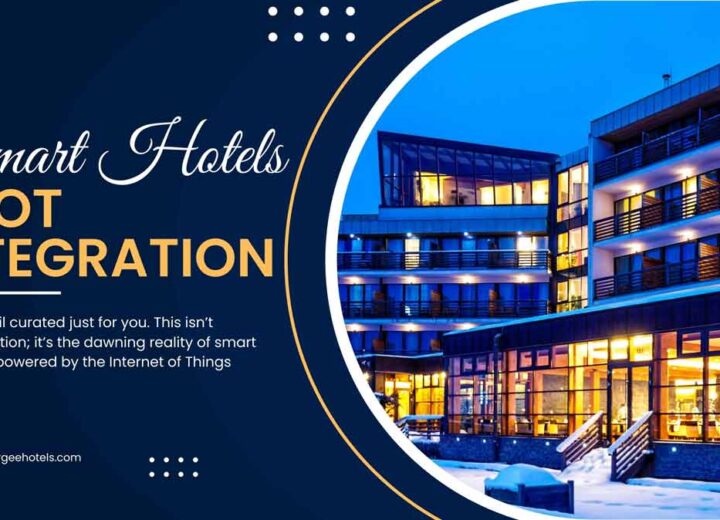
AI and Automation Transforming Hotel Operations: The Rise of Smart Hotels
Hotels are on the brink of tech changes, with AI leading the charge. Many hotels are using smart tech to improve guest visits and operations. Fancy check-ins, AI helpers, and future-fixing systems are rising . Ai and Automation transforming hotel operations: the rise of smart hotels
Smart hotels aren’t just a passing fad, they’re tomorrow’s thing. In this post, we’re looking at how AI changes hotels, the good stuff for hotel folks and guests, and the big new ideas sparking this shift.
How AI is Transforming the Hospitality Industry
AI is helping hoteliers streamline operations, boost profitability, and enhance operational efficiency in several ways. By automating routine tasks like check-ins, room service requests, and guest communications, AI reduces human error and saves valuable time. Advanced analytics powered by AI also enable hoteliers to optimize pricing strategies, predict demand, and personalize guest experiences, which enhances customer satisfaction. Additionally, AI-driven systems can monitor energy usage, reducing waste and lowering operational costs. These efficiencies contribute to improved profitability while ensuring seamless, high-quality service for guests.
The Evolution of Smart Hotels

In the past, the hotel world should have picked up the latest tech quicker. Still, the COVID-19 crisis and swift changes in customer needs have sped up the use of AI and automated tools in hotels. Now, guests want services that are more unique, smooth, and quick, which hotels answer by bringing smart technologies into their activities. Smart hotels are known for their use of tech brainpower, IoT (internet goodies), and automated tools to make both guest and back-end tasks better. This new tech lets hotels give unique experiences while making everyday tasks quicker, cutting costs, and increasing service quality.
- Personalized Check-Ins and Seamless Guest Experience
AI has really changed the hotel experience. Forget waiting in line to check into your room. Now, AI helps with that. You can use mobile apps, kiosks, or even talk to devices in your room to check in.
An example might be this. Say, a visitor shows up. A facial recognition system might say hello and check them in. No need for people to get involved. This tech makes things safer and faster, especially when lots of folks are coming through. What’s more, the staff are no longer tied up. They can zero in on tailored tasks, like taking care of special guest requests or making the experience even better overall.
Hotels like Marriott and Hilton have introduced mobile check-in options that allow guests to skip the front desk entirely. By integrating AI into the process, these systems can offer a fully customized experience. For example, the system might remember a guest’s room preferences, past stays, or specific requests, ensuring that their room is pre-set to their liking.
- AI-powered concierge and Guest Services
In the era of smart hotels, the traditional hotel concierge is being replaced—or at least supplemented—by AI-powered virtual assistants. These systems can handle guest requests, from booking dinner reservations to local sightseeing recommendations.
For example, IBM’s Watson, known for its AI prowess, has been employed by several hotels as a digital concierge. Using natural language processing (NLP), Watson can interact with guests, answering their questions, making reservations, or suggesting services based on their preferences.
Another innovative example is Connie, Hilton’s AI-powered robot concierge, which provides guests with information about the hotel and local attractions. Guests can ask Connie questions in natural language, and the robot responds in real time, drawing from a vast database of information.
AI systems can also interact with guests through mobile apps, allowing them to control their room environment, order room service, or communicate with hotel staff without needing to pick up the phone. This enhances guests’ convenience and ensures that their needs are met promptly and efficiently.
- Smart Room Automation
Bright rooms are rapidly gaining traction as guests increasingly expect more significant control over their environment. In intelligent hotels, guests can use mobile apps or voice commands to control everything from room temperature and lighting to entertainment systems.
Some hotels are integrating IoT devices that allow guests to create personalized room settings before arriving. For example, guests might prefer a specific room temperature, lighting setup, or TV channel when they enter the room. Innovative hotel systems can remember these preferences from previous stays and automatically configure the room to match.
In addition to enhancing the guest experience, bright rooms can also lead to significant energy savings for hotels. Sensors can detect when a room is unoccupied and automatically adjust the thermostat or turn off lights, reducing energy waste. Over time, this can lead to substantial cost savings while supporting sustainability goals.
- Predictive Maintenance and Operational Efficiency
Predictive maintenance is one of the most transformative aspects of AI in hotel operations. Traditional maintenance models rely on regular inspections or responding to issues only after they arise. However, AI-driven systems can predict when equipment will likely fail or require servicing, allowing hotels to address issues before they become significant problems.
For example, an AI system might monitor HVAC systems, elevators, or kitchen equipment and alert the maintenance team when it detects signs of wear or performance issues. This predictive capability reduces downtime and prevents expensive emergency repairs, improving the overall operational efficiency of the hotel.
Similarly, AI can optimize housekeeping schedules based on guest behavior and room occupancy. Instead of adhering to rigid cleaning schedules, smart hotels can use occupancy sensors and real-time data to determine when rooms need cleaning. This reduces unnecessary cleaning and labor costs while ensuring guests enjoy a fresher room when required.
- Enhanced Security and Safety

The integration of AI and automation in hotels is also transforming security measures. AI-powered surveillance systems can analyze real-time video footage to detect unusual behavior, identify unauthorized access, or respond to emergencies. Facial recognition technology is increasingly being used for seamless check-ins and to enhance security by identifying potential security threats.
Hotels also deploy automated systems to ensure health and safety compliance, particularly during the COVID-19 pandemic. Computerized cleaning robots and UV sterilization devices are used to sanitize high-touch areas, while AI monitors air quality in common areas to ensure proper ventilation and air purification.
- Revenue Management and Dynamic Pricing
AI is not just transforming guest services but is also revolutionizing how hotels manage their revenue. Traditional revenue management relies heavily on historical data and manual calculations to determine room pricing. However, AI-powered revenue management systems can analyze vast amounts of data, including real-time market conditions, competitor pricing, demand fluctuations, and weather forecasts, to set dynamic pricing that maximizes revenue.
These systems use machine learning algorithms to continuously adapt pricing strategies in response to changes in demand. For example, suppose a sudden surge in demand is detected due to a local event. In that case, the AI system can automatically adjust room rates to capitalize on the opportunity, all without manual intervention.
- Chatbots and 24/7 Customer Support
AI-powered chatbots are playing an increasingly important role in providing 24/7 customer support. These virtual assistants can handle various inquiries, from booking questions and room availability to handling complaints or special requests.
Unlike human staff, AI chatbots can operate around the clock, offering quick and accurate responses. This ensures that guests receive immediate assistance, whether booking a room in the middle of the night or seeking help with an issue during their stay.
Moreover, AI chatbots can learn from each interaction, improving their ability to provide relevant and accurate information over time. This learning capability ensures that the guest experience improves with every interaction.
- Sustainability and Smart Energy Management
Sustainability is becoming a top priority for hotels, and AI-driven systems play a key role in helping hotels reduce their environmental footprint. Intelligent energy management systems use AI to monitor energy usage in real time, making adjustments to optimize efficiency.
For instance, AI can adjust lighting, heating, and cooling based on occupancy levels, weather conditions, and energy demand. Hotels like Marriott and Hyatt have already begun using intelligent energy management systems to reduce their carbon footprint, and the results are promising: hotels can see energy savings of up to 20% by using AI-driven systems.
AI can also assist in waste management by tracking food consumption patterns and predicting demand, helping hotels minimize food waste. This not only reduces costs but also contributes to sustainability goals.
Challenges and Considerations
While AI and automation present significant hotel opportunities, they also come with challenges. Initial investment costs for intelligent technologies can be high, particularly for smaller hotels. Moreover, integrating AI requires training and adaptation from hotel staff, as well as addressing potential data privacy and security concerns.
The human touch in hospitality is irreplaceable, and hotels must balance automation and personalized service. While AI can handle many tasks efficiently, human staff’s emotional intelligence and empathy remain critical for creating a warm and memorable guest experience.
The Future of Smart Hotels
As AI and automation continue to evolve, the future of intelligent hotels looks bright. We can expect to see even more advanced AI systems that offer hyper-personalized experiences, including AI-driven recommendations for activities, personalized wellness services, and real-time adjustments to guest preferences.
Moreover, integrating AI with emerging technologies like augmented reality (AR) and virtual reality (VR) will create new guest experiences, blurring the lines between the physical and digital worlds.
Ultimately, the rise of intelligent hotels represents a shift towards a more data-driven, efficient, and guest-centric hospitality industry. For hoteliers willing to invest in these technologies, the benefits are clear: improved guest satisfaction, reduced operational costs, and the ability to stay competitive in a rapidly changing market.
Conclusion: Embracing the Future of Hospitality
AI and automation are transforming the hotel industry in ways once considered science fiction. By enhancing guest experiences, improving operational efficiency, and driving sustainability efforts, intelligent hotels set a new standard for what guests can expect from their stay.
As the hospitality landscape evolves, embracing these innovations will be vital to staying ahead of the competition and delivering the experiences that modern travelers demand. The future of hospitality is bright—and it’s already here.







0 Comments